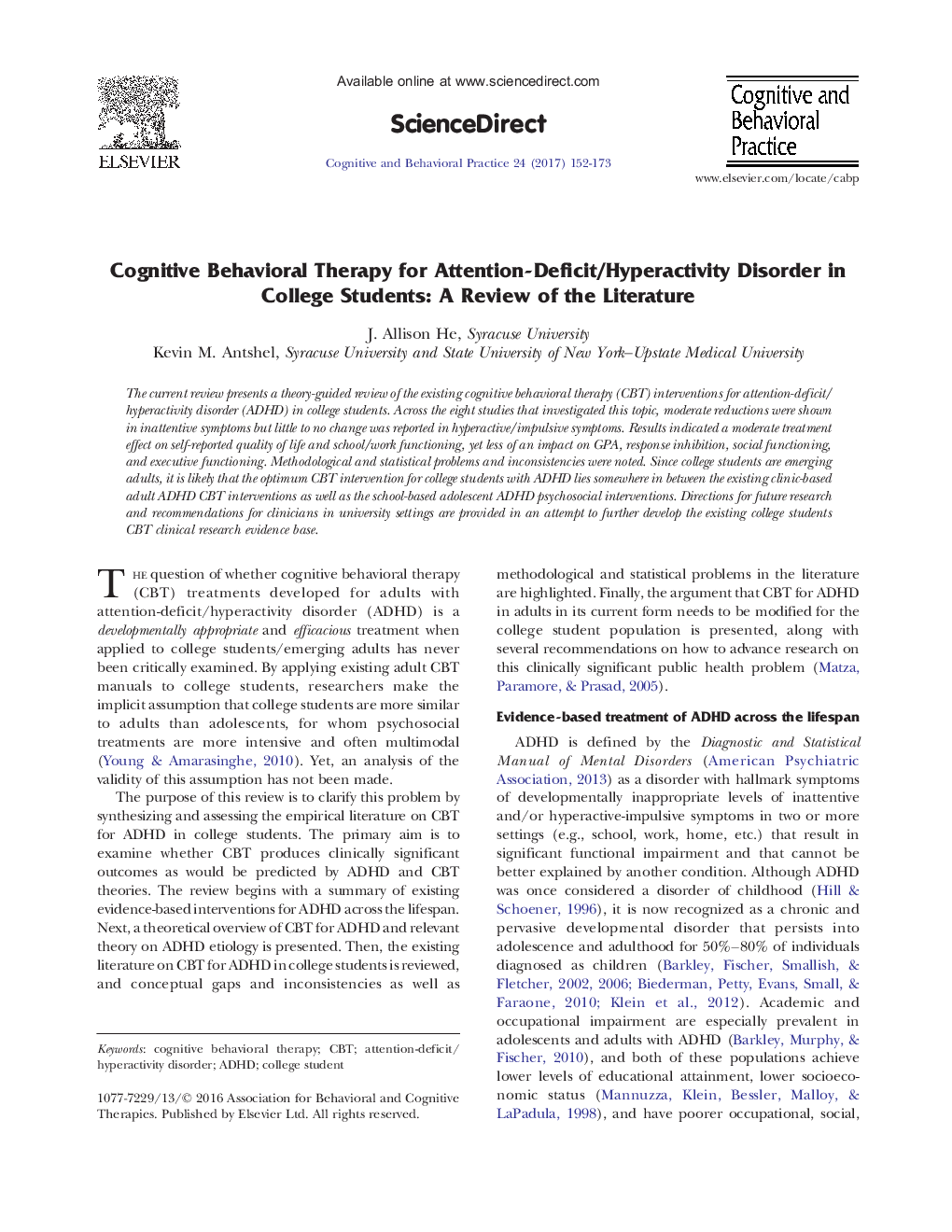| Article ID | Journal | Published Year | Pages | File Type |
|---|---|---|---|---|
| 5038596 | Cognitive and Behavioral Practice | 2017 | 22 Pages |
â¢We review the literature on psychosocial interventions for ADHD in college studentsâ¢Moderate to large reductions were reported in inattentive symptoms but findings were less robust for hyperactive and impulsive symptomsâ¢GPA, response inhibition, interpersonal functioning, and executive functioning either showed limited change or were not measuredâ¢More research is needed to bolster the evidence base for the efficacy of CBT for college students with ADHD
The current review presents a theory-guided review of the existing cognitive behavioral therapy (CBT) interventions for attention-deficit/hyperactivity disorder (ADHD) in college students. Across the eight studies that investigated this topic, moderate reductions were shown in inattentive symptoms but little to no change was reported in hyperactive/impulsive symptoms. Results indicated a moderate treatment effect on self-reported quality of life and school/work functioning, yet less of an impact on GPA, response inhibition, social functioning, and executive functioning. Methodological and statistical problems and inconsistencies were noted. Since college students are emerging adults, it is likely that the optimum CBT intervention for college students with ADHD lies somewhere in between the existing clinic-based adult ADHD CBT interventions as well as the school-based adolescent ADHD psychosocial interventions. Directions for future research and recommendations for clinicians in university settings are provided in an attempt to further develop the existing college students CBT clinical research evidence base.
